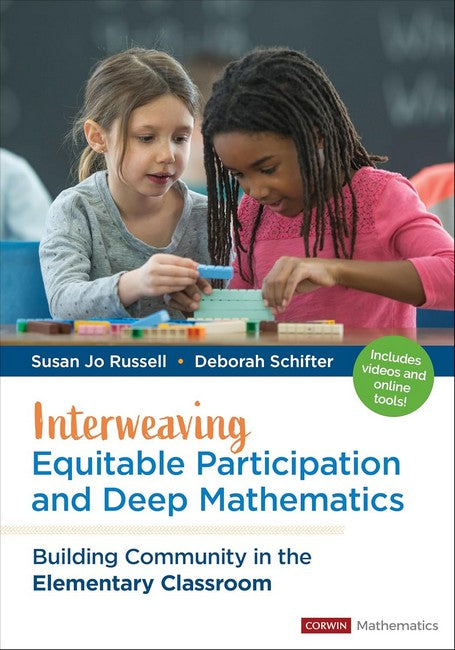Susan Jo Russell began her career in education as a K-3 classroom teacher and elementary mathematics coach. For the last four decades, she has been a senior researcher at TERC, a nonprofit organization that focuses on mathematics and science education, where she directed projects on childrens mathematical understanding and on supporting teachers to learn more about mathematics and about childrens mathematical thinking. She spearheaded the original development and second edition of the K-5 mathematics curriculum, Investigations in Number, Data and Space, and contributed to the conceptualization of the Forum for Equity in Elementary Mathematics. In recent years, her research has centered on how students engage in early algebra, number and operations, and mathematical argument, and how to support teachers to engage all of their students in high-level mathematical reasoning. Deborah Schifter has worked as an applied mathematician; has taught elementary, secondary, and college level mathematics; and, since 1985, has been a mathematics teacher educator and educational researcher at Mount Holyoke College and at the Education Development Center. She authored Reconstructing Mathematics Education: Stories of Teachers Meeting the Challenge of Reform and edited a two-volume anthology of teachers writing, Whats Happening in Math Class? for which she received the American Educational Research Association Professional Service Award in recognition of an outstanding contribution relating research to practice. She was a writer for The Mathematical Education of Teachers as well as the second and third editions of the K-5 curriculum, Investigations in Number, Data, and Space. Her recent research has focused on students mathematical generalizations and how students use a variety of representations to explain why such generalizations are true.
Request Academic Copy
Please copy the ISBN for submitting review copy form
Description
Preface Introduction: What Is Mathematical Community? Part One: Every Voice Matters Chapter 1: Creating Multiple Openings into Engaging Mathematics Chapter 2: Establishing Expectations and Structures for a Participatory Mathematics Community Chapter 3: Making Space and Time for Every Student Chapter 4: Encouraging Persistence Part Two: Collaboration Supports Student Agency Chapter 5: Noticing Patterns as a Gateway to Building Mathematical Ideas Together Chapter 6: Collaboratively Building Towards a Conjecture Chapter 7: Centering Students Ideas to Formulate a Class Conjecture Part Three: Student-Created Representations Offer Anchors, Openings, and Depth Chapter 8: Raising Student Voices through Student-Created Representations Chapter 9: Looking Across Representations Chapter 10: Facilitating Critique and Revision of Student-Created Representations Part Four: Students Become Initiators and Advocates for Their Own Learning Chapter 11: Supporting Students to Take Charge of Their Own Learning Chapter 12: Normalizing Confusion Conclusion: What To Do Next Appendix A: Mathematical Generalizations Explored in This Book Appendix B: Resources for Continued Learning

